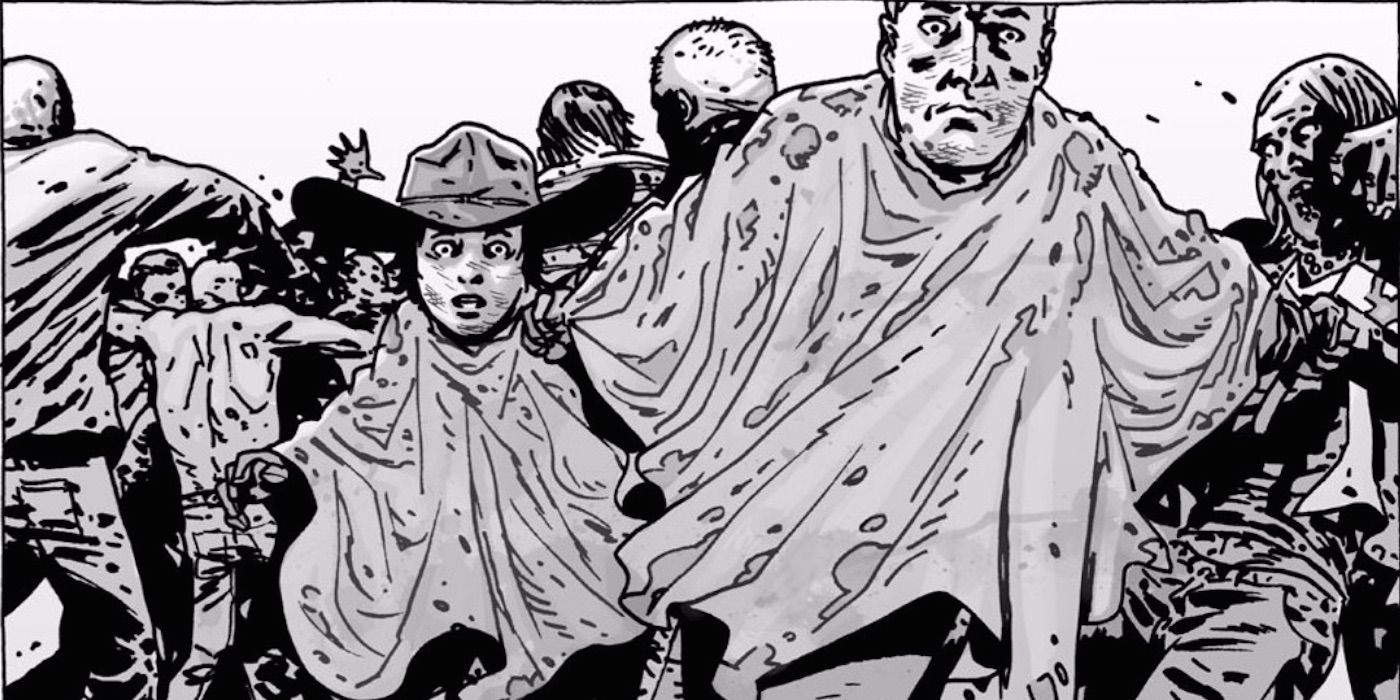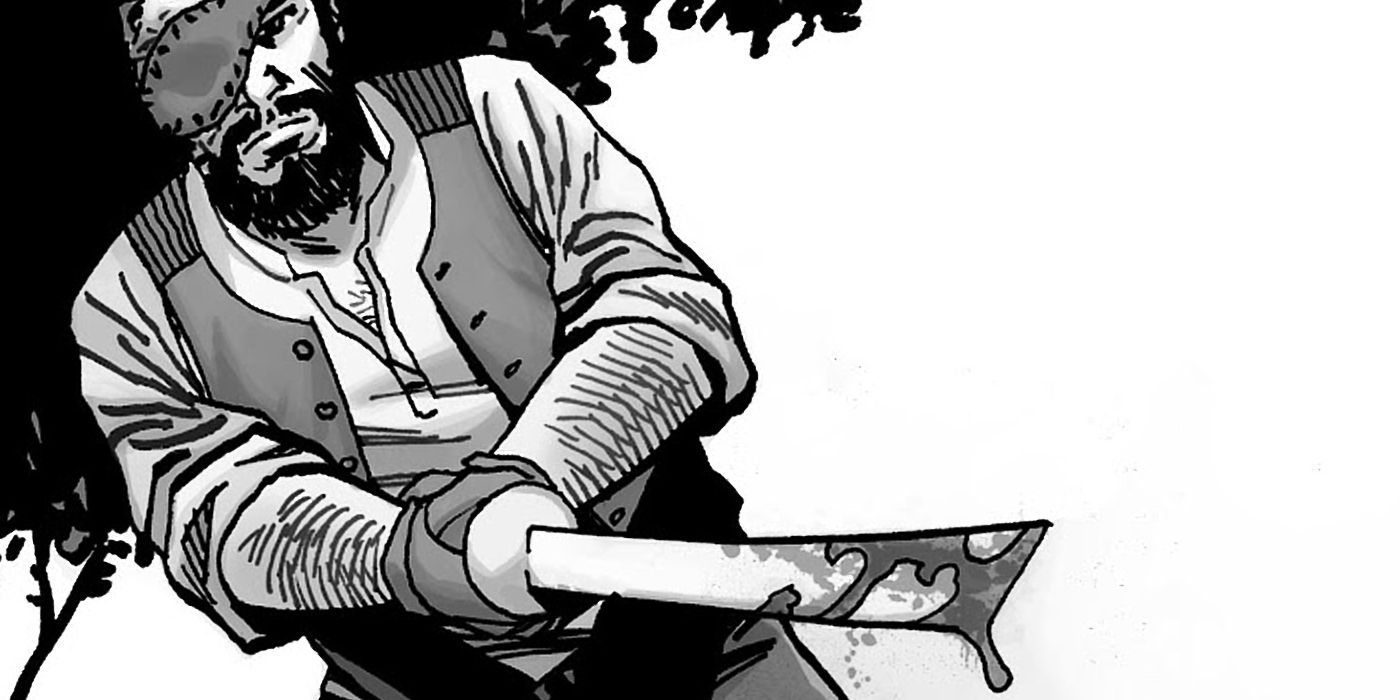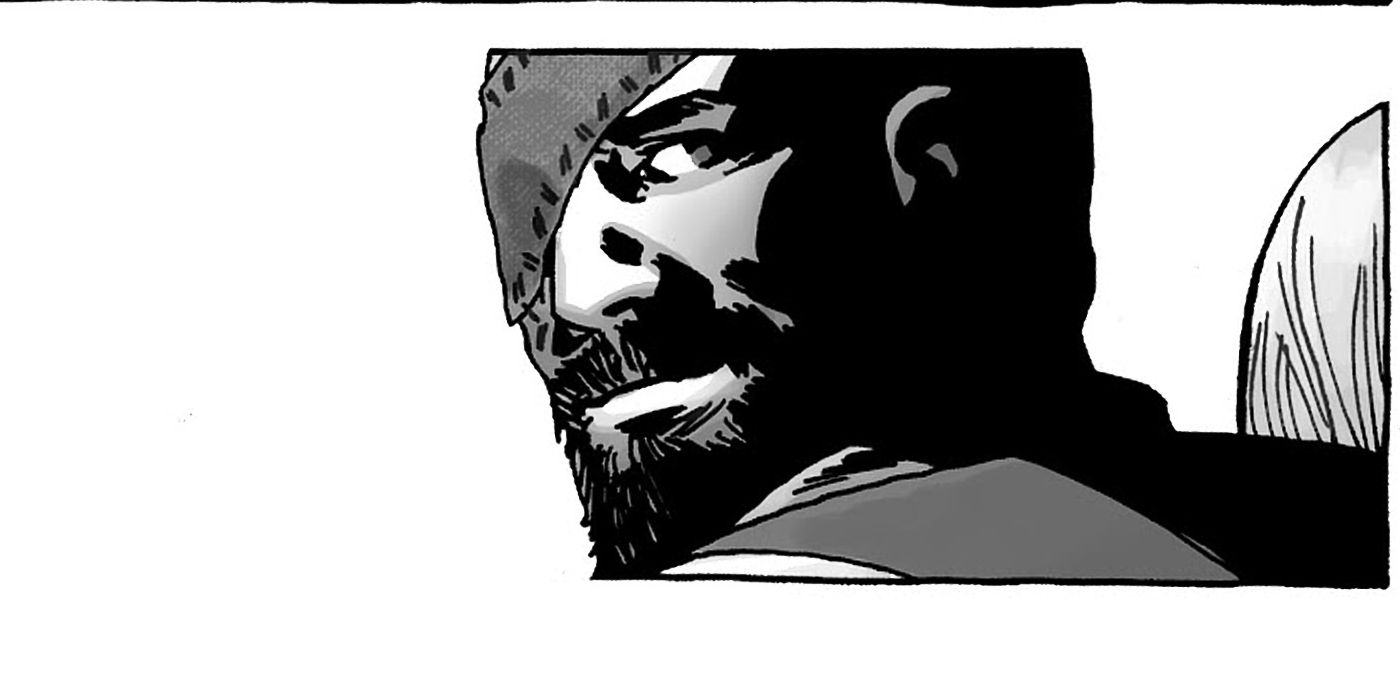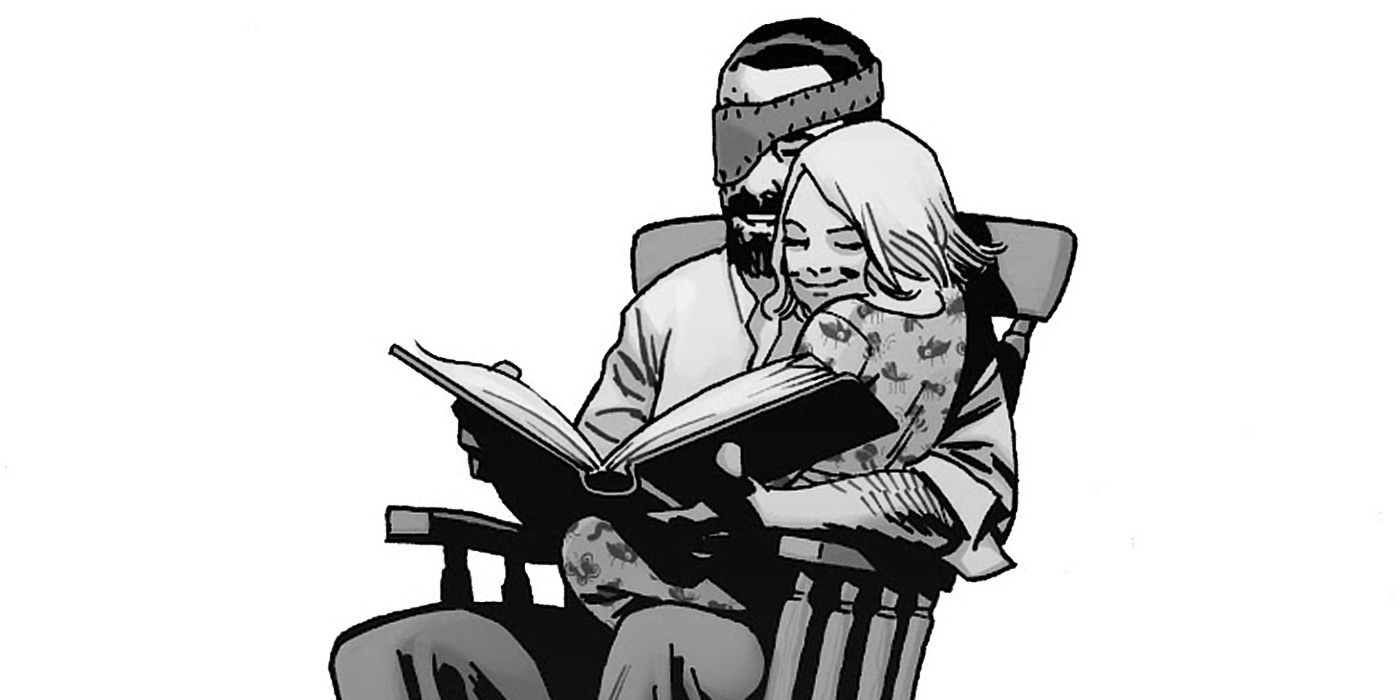WARNING: The following contains spoilers for The Walking Dead #193 by Robert Kirkman and Charlie Adlard.
The Walking Dead had been steadily building to a breaking point between the survivor communities before Rick Grimes calmed the potential conflict. He paid for that act with his life, shot dead by Sebastian Milton for his role in deposing the rule of his mother, Governor Pamela Milton. In the end, it was his teenage son Carl who had to put down the reanimated Rick. While fans expected the long-running series to continue, its surprise ending, with this week's Issue 193, jumps forward in time to show the impact Rick's decisions have, not only on Carl but the post-apocalyptic world.
The finale also, more or less, confirms a long-standing fan theory, that Carl would ultimately survive the apocalypse and pass on Rick's story to the next generation.
Old Man Carl
The "Old Man Carl" theory posits that the entire series is being told by an older Carl Grimes: After surviving every ordeal thrown his way, Carl grows up to share the events of The Walking Dead. In that way, all the people who died in the series would live on in some way. The theory became more poignant after the surprising death of Rick in Issue 192.
The theory picked up steam as the series went on. With the multi-year time jump following the events of "All Out War," Carl even rose to a point of prominence equal to his father, the series' nominal protagonist. It would serve as a fitting conclusion to the story of Rick and Carl, cementing their legacy in the world they had helped to save. It would also see the completion of one of the comic's major themes, how the newest generation has to learn from the ones that came before in order to make a better world.
Manifest Destiny
The final issue of The Walking Dead tackles many of those concepts, to the point where it appears "Old Man Carl" was indeed the endgame. There's a time jump of at least a decade, during which society has begun to rebuild to roughly the equivalent of the 19th-century American West. Walkers are no longer a significant threat, having been cuddled to a manageable population. An older Carl discovers one on his property and quickly dispatches it with the sword that once belonged to Michonne. It's the first one he's seen within the Safe Zone in years, as it enrages him, setting the stage for the series' final conflicts as he argues for remembering of the past.
RELATED: The Walking Dead: Idaho High School Bans Image Comics Series
Carl is also raising a daughter (named after Andrea) alongside fellow Atlanta survivor Sophia. Settlements have popped up all around North America, and justice has been restored, thanks in part to Commonwealth President Maggie Greene and Judge Michonne Hawthorne. Even if future generations are already forgetting the sacrifices made in the past, they at least have a future. Rick's dream of a peaceful world for his son has come true, even if he never got to see it.
The End
The Walking Dead ends pretty much exactly how the "Old Man Carl" theory suggested it would. After being pardoned for killing a group of walkers used in a traveling show, Carl returns home to his family. He kisses his wife and tells his daughter a bedtime story -- a sanitized version of the tale of Rick Grimes. Carl frames it less as a tragedy and more as a story of hope: how humanity was able to band together and survive, even when the dead rose to bring them down. The fans who supported this theory were spot-on.
But even they probably didn't expect the series to end on such a soft note. The final pages of the horror comic feature Carl and his daughter smiling and laughing. It's one of the few genuinely happy and safe moments in the entire series. And for Carl, it feels earned. An entire second series could have been focused on the journey that led Carl and the other survivors to this point, but this conclusion allows the series to go out on hopeful notes




